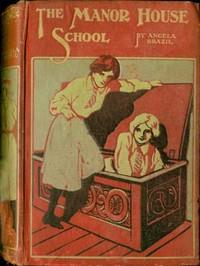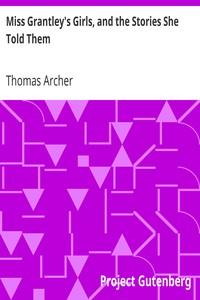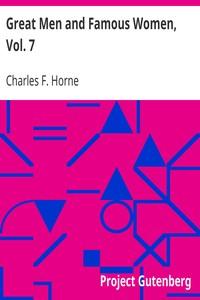Read this ebook for free! No credit card needed, absolutely nothing to pay.
Words: 10333 in 5 pages
This is an ebook sharing website. You can read the uploaded ebooks for free here. No credit cards needed, nothing to pay. If you want to own a digital copy of the ebook, or want to read offline with your favorite ebook-reader, then you can choose to buy and download the ebook.


: Latin Pronunciation: A Short Exposition of the Roman Method by Peck Harry Thurston - Latin language Pronunciation
LATIN PRONUNCIATION.
INTRODUCTORY.
THIS short manual is primarily intended for those who, being interested in the study of Latin, have accepted the Roman method of pronunciation upon the authority of the Grammars, but have either not been able to command the time to make themselves familiar with the arguments upon which this system is based, or have been repelled by the technicalities employed in treating the question from the standpoint of the specialist. It is believed that the following pages will be found to give in simple form the main facts bearing upon this interesting question; and that nothing has been introduced that is either unnecessary or obscure. For those who may wish to pursue their investigations farther after mastering these facts, a bibliography of the subject is given at the end.
The Roman method of pronouncing Latin has now received the approval of all Latinists of authority in Europe and America, as giving substantially the pronunciation employed by educated Romans of the Augustan Age. It has been formally adopted at our leading Universities. The most recent Grammars of the language recognize no other method. Thus, one great reproach to classical scholarship seems likely to be soon removed, and one universal pronunciation of the noblest of the ancient languages to receive general acceptation. This little book will more than accomplish its object if it shall have aided ever so slightly in discrediting the barbarisms of a method which, to use the expression of a distinguished scholar, "ought long since to have followed the Ptolemaic system of astronomy into the limbo of unscientific curiosities."
It is natural that the Roman system should make its way more rapidly into use in this country than in Europe, not because Americans are more given to experiments, but because here in the United States the inconveniences of having no standard system have been more sharply felt. New England being wholly settled from Old England, long continued the English system of pronouncing Latin. In the Middle States, the Germans and Dutch introduced their own methods; in the South and West, the French pronunciation came in quite frequently; and all over the Union, the Catholic clergy in their schools and colleges have propagated the traditional usage of their Church. Hence a Babel of pronunciations and systems existing and practised side by side, in a picturesque confusion such as no European country ever knew; and hence the general willingness to accept a single method, especially one that is based upon historic truth.
SOURCES OF OUR INFORMATION.
A QUESTION of much interest to the student of Latin, and one that does not always receive a satisfactory answer, relates to the sources of our information.
What knowledge have we of how the Romans pronounced their own language nineteen hundred years ago? How is it possible after so long an interval to reconstruct the laws of a pronunciation which prevailed at a given period of the remote past?
Briefly summarized, the sources of our information are six in number.
We may, then, broadly divide the ancient authorities on this subject into two groups,--the first consisting of those writers who themselves belonged to the classical age; the second, of those grammarians and commentators who have left us very full statements, though the date at which they wrote somewhat impairs the value of their testimony.
Of the other writers on language who treat the subject very minutely, a great number might be cited. The most important are Terentianus Maurus, who wrote, perhaps about the third century, a poem on letters, syllables, feet, and metres, which is twice quoted by St. Augustine; Verrius Flaccus, the tutor to the grandchildren of the Emperor Augustus and author of a work on the meaning of words which has come down to us in a later abridgment; Aulus Gellius, who, toward the end of the second century, compiled a huge scrap-book on a variety of subjects, many of them of great linguistic interest, and, with the exception of a few chapters, still extant; Priscianus Caesariensis, who wrote under Justinian at Constantinople eighteen books of grammatical commentaries which form the most complete grammar of antiquity; and Aelius Donatus , whose elementary treatise was so highly thought of in the Middle Ages that the name "donat" was used as a generic term for a grammar.
From these and many other writers one gathers a great mass of instructive facts; and their very silence is sometimes as significant as what they say.
Free books android app tbrJar TBR JAR Read Free books online gutenberg
More posts by @FreeBooks

: Harper's Young People June 1 1880 An Illustrated Weekly by Various - Children's periodicals American Harper's Young People


: The Manor House School by Brazil Angela Dixon Arthur A Arthur Augustus Illustrator - Boarding schools England Juvenile fiction; Girls Juvenile fiction






